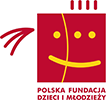English
What our Observatory is?
Kultura Liberalna’s Public Debate Observatory is a research institute, which purpose is to collect and analyse cases of radicalization in the Polish public debate. Our research concerns not only hate speech – a phenomenon well known and partially monitored by appropriate organisations – but also all other forms of radicalization.
We want Poland to be a country with a pluralised public sphere, providing freedom of choice, tolerance, respect and dignity for all individuals regardless of his or her ethnicity, group affiliation, sex, opinions within the limits of a democratic debate. We want for Poland a well-educated, conscious and active civil society. We believe research of the Public Debate Observatory is a substantial contribution in achieving this goal.
What are radicalizations?
Radical statements in Poland have many forms: aggressive, insulting, antidemocratic, xenophobic, homophobic, vulgarly anticlerical etc. The media often not only quote such statements without an appropriate commentary, but also pick up specific debaters in order to exacerbate their discussion. They want to increase newspaper circulation, television viewership, website traffic – in sum: the want to increase the profit.
Thus, public discourse in Poland becomes increasingly antagonising, simplified and insulting. These changes are interconnected with broadening the gap between ideological groups. Not only the opinions expressed in electronic and paper media are radicalizing, but also the forms of these expressions.
For a liberal democracy the increase of radicalization could be dangerous and destabilising. Specifically it leads to:
- Citizens’ mistrust of media and politics, superseding substantial statements with emotional, disuniting ones, caused by self-escalating spiral of aggression in the media.
- Internalization of radicalism – decreasing sensitivity for displays of radicalism, leading to degeneration of a moderate centre
- Grievances of aggressive statements’ victims.
Not every display of radicalism is a display of hate speech. However, accumulation of radicalisms leads to hate speech escalation.
Why are we dealing with radicalization just now?
2015 will be a year of events and processes escalating radicalization in Poland:
- Accumulation of symbolic anniversaries and significant political events.
- Long-term effects of the financial crisis.
- Increasing radicalization of Internet discussions.
- Accumulation of symbolic anniversaries and significant political events.
It is the fifth anniversary of the Smolensk crash this year. Also the ceremonies held on the Independence Day (11th November) always are accompanied by radicalization. In 2015 we will also have both presidential and parliamentary elections in Poland. All those events are pretexts for radicalization and seeking scapegoats.
- Long- term effects of the financial crisis.
Data published by GUS (Polish Central Statistical Office) deny the alleged increase of financial inequalities in Poland. Nevertheless, the subjective sense of exclusion among people having less financial, social and cultural capital is growing. This could foster search and acceptance of radical and populist attitudes.
- Increasing radicalization of Internet discussions.
Social media, blogs, Internet forums etc. play a major part in this trend. In order to save their popularity, traditional media copy the web-specific abbreviations, increasing the radicalization of public discourse.
This radicalization takes place not only in Poland, but all around Europe. War on terror and extremisms consists not only in forcible solutions. The best preventive method is making citizens aware of radicalism’s harmfulness and preparing them to resist it.
What and how do we research?
Here is a list of 7 most likely to radicalise topics:
- Gender, minorities’ rights, family, social customs changes.
- Smolensk crash and its effects.
- History, historical policy, forms of patriotism, national holidays.
- Religion, attitudes towards the Catholic Church and Catholics, attitudes towards religious minorities, atheists.
- Work, economy, trade unions’ image, employers’ image.
- Alien, Other. Attitude towards immigrants and national minorities.
- Politics and media, political parties and ideological communities competition, language of conflict
There are two basic types of radicalizing statements:
- Insulting, libellous statements
- Radicalizing slogans, titles, illustrations with no reference to the allegedly described facts. Front covers of magazines are teeming with provoking titles. These are the methods of attracting reader’s attention. In spite of the declarations – e.g. “we know how they faked the elections” –there is no confirmation or justification for the radical statements in the texts. We can also observe innuendos, even illustrated, e.g. depicting politics as infamous historical figures (Jarosław Kaczyński as Wojciech Jaruzelski etc.).
We are constantly monitoring selected magazines from different sides of the ideological spectrum: “Gazeta Wyborcza”, “Rzeczpospolita”, “Fakt”, “Polityka”, “Newsweek”, “W sieci”, “Do Rzeczy”. In justified cases we monitor also selected radio and television stations and web forums. The effects of the on-going monitoring are published monthly on our website.






